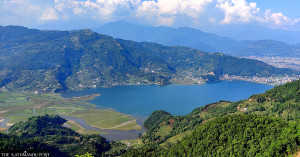Money
Tea, coffee plantation to be extended
National Tea and Coffee Development Board (NTCDB) plans to extend tea and coffee plantation on an additional 60 hectares and 160 hectares of land, respectively, this fiscal year.
The board said it took the move considering rising demand for the products in the international market. Gaurab Luitel, planning officer at the NTCDB, said a total of Rs10 million each for tea and coffee has been allocated for this fiscal year for the purpose. Last year, the board had invested Rs4.5 million to extend coffee plantation on 124 hectares of land.
Coffee is produced in 41 districts on 2,100 hectares of land as of 2013-14. And, tea is produced in 21 districts on 20,120 hectares.
Luitel said South Korea has emerged as the top importer of Nepali coffee. “The country has been keen to purchase a large volume of Nepali coffee,” he said. Japan and Germany are also among the major buyers.
Despite the soaring demand for coffee, domestic production, however, stands at mere 400 tonnes annually. As per the board, Nepal exported just 62 tonnes of coffee last year. Low productivity, outbreak of coffee rust disease and outburst of an insect named ‘White Stem Borer’ have been blamed for the low production.
Luitel said new plantation could be done in Pyuthan, Sindhupalchok, and Kavrepalanchok. He said Pyuthan is the new area where the board would be expanding the plantation.
Besides the outbreak of the diseases, lack of skilled manpower, absence of irrigation facility, lack of insurance, high interest rates are other major problems, said the board. It said the demand for organic tea has also been growing. Of the 60 hectares of targeted new plantation area, the board plans to initiate plantation on 40 hectares in Bhojpur. Other districts are Solukhumbu and Tehrathum.
The NTCDB statistics show Nepal produced 21,076 tonnes of tea in 2013-14, of which 20-25 percent was orthodox tea and the rest CTC tea. Germany, India, Korea and Japan are the main buyers of Nepali tea.
Luitel said Nepali tea has high export potential if chemical residue is reduced. “In the recent time, high pesticides residue in tea produced mainly by small farmers has been hitting the business in the international market,” said Luitel, adding there was a need for increasing awareness along with implementing integrated pest management to resolve the problem.




 27.37°C Kathmandu
27.37°C Kathmandu













